It's International Brain Awareness Week, and we're celebrating by spotlighting the work of thought leaders in the drug policy, cannabis and psychedelics fields!
As the movement for progressive drug policy gains momentum, it's crucial to recognize the Black scientists, academics, and activists in cannabis, psychedelics, drug science and/or interdisciplinary policy, whose work is particularly revolutionary in spite of historic oppression. This list honors their instrumental contributions and legacies, and serves as a reminder that their guiding work should be celebrated and elevated every day and throughout the year.
Black History and The War On Drugs
Far too many people, none more than people of color, have suffered grief, incarceration, loss or scarcity of community and other resources as a result of drug prohibition. The American-born oppression machine and misinformation regime known as the War on Drugs has shaped each generation’s perception of drugs since the early 1970s. Since its inception, anti-drug propaganda has amassed mainstream media by reinforcing prepackaged, racially-motivated, stereotypes of drug users with sensational scare-tactics.
Just as American pop culture has consistently fed on Black artistry and cultural excellence, while disregarding and conveniently ignoring relevant systemic issues in the name of profit, so too does American drug policy operate by prioritizing white consumption. Decades of a wildly successful “War on Drugs” gave white politicians endless opportunities to wage performative action, often at the direct expense of targeting non-white ethnic groups to sensationalize drug myths.
The national hysteria for drug-related crime, coupled with systemically racist overpolicing, stop-and-frisk, and double-standard drug penalties, has imbued generations with personal and community financial ruin at best, and displacement, loss of life or incarceration at worst.
Cannabis, Black history, and oppression are inextricably linked. While research shows evidence that cannabis cultivation first reached Africa in the 13th century, its groundings in Western culture are rooted in slavery. During the early 1800s, British merchants moved over a million indentured servants from India to the Caribbean. The Indian workers brought cannabis with them, introducing the plant to enslaved Africans who lived on islands throughout the region. Over the following century, descendants of these slaves would immigrate to the United States, helping create the rise of a jazz culture and with it, a cannabis culture. It was that very culture which provoked conservative watchdogs like Harry Anslinger, head of the Federal Bureau of Narcotics in the 1930s, to raise alarm about the perceived evils of jazz and cannabis through “Reefer Madness”. For a more in-depth look at how Reefer Madness evolved to the War on Drugs and the ties between Black history and cannabis, check out this article.
Where Is Black Leadership In Cannabis, Psychedelics and Drug Policy?
Today, as the cannabis legalization movement fights back against the War on Drugs’ pervasive harms, disparities still remain. A report from MJBizDaily showed that in 2022, non-white ownership of cannabis businesses shrank to 15.4 percent from 20.7 percent in 2021. Despite some programs for expungement, the criminal process still exists on the state and federal level for cannabis.
Compared to cannabis, the national conversation for legalizing psychedelics is years behind. Despite evidence of their safety and therapeutic potential, LSD, psilocybin, and the amphetamine-based “ecstasy” or MDMA, have been considered illicit substances with no acceptable medical use for over fifty years. It’s no wonder that for Black folks, the conversation about psychedelics is in its infancy. While an anti-racist attitude generally prevails among those touting MDMA trials and healing mushroom ceremonies, participation and employment still resembles white bread.
If conversations in today’s mainstream media continue to be baked in our country’s history of discrimination in policy and practice, we will be making neither congress nor progress.

Dr. Carl Hart, PhD
A world-renowned neuropsychopharmacologist and out-of-the-closet drug user, Dr. Carl Hart is a brave advocate for reclaiming how society views drugs and people who use them. The author of Drug Use for Grown Ups: Chasing Liberty in the Land of Fear and High Price, Dr Hart has internationally revolutionized the science of addiction with his interdisciplinary approach, paving the way for improved drug education and safer communities. Dr Hart currently teaches at Columbia University, where he leads the neuropsychopharmacology lab and investigates the way humans interact with drugs. From physiology to public policy, he also examines the history of misinformation and racial bias in American drug policy. His book Drug Use for Grown Ups is an academic champion of public transparency, personal autonomy, and an appreciation of American values. He maintains that drugs themselves aren’t the problem; and highlights the importance of context and community resources when it comes to having conversations about substance use and substance use disorder.
Elevate your next dinner date with neuropsychopharmacology and advocacy! Stare deep into your beloved’s eyes and ask how they truly feel about broad drug legalization. Then take turns reading from Carl’s books, revising any stigmatization with using certain drugs, and responsibly indulging in your drug of choice.

Kassandra Frederique
As Executive Director of the Drug Policy Alliance (DPA), Kassandra is one of the most accomplished and pertinent voices advocating for Black, Latinx, Indigenous, immigrant, LGBTQIA+ and other groups affected by the drug war. From policing, to the overdose crisis, her innovative campaigns are led with a focus on racial justice, which speaks to all of DPA’s work. The national nonprofit coalition of legal, medical and policy experts is dedicated to raising awareness and calling action to the systemic harms caused by the War on Drugs. Frederique has mobilized cities to rethink their approach to drug policy from the ground up, and has helped bring the dialogue around safer consumption spaces to the national level through strategic organizing and partner development. Among other victories, Frederique was the architect of the campaign that cut the number of New York City’s cannabis arrests by more than 99 percent since 2010, curtailing the city’s infamous reign as the cannabis arrest capital of the country. She has been instrumental in grounding the national drug policy conversation around reparative justice and restitution for communities harmed by the War on Drugs, actively working with numerous New York-based and national organizations such as the In Our Names Network to resist oppression-fueled state violence. Featured in the Netflix documentary Grass Is Greener and recognized on Essence Magazine’s Woke 100 and The Root’s ROOT100, Frederique’s numerous awards and accolades include the New York City Council Women of Distinction, the National Advocates for Pregnant Women Emerging Leader Award, and VOCAL New York’s Joe Bostic Advocacy Award.

James Baldwin
The work of legendary activist and writer James Baldwin is unsurpassable, and likely foundational for many of the visionaries on this list. Baldwin's 1957 short story "Sonny's Blues" is one of the only written works of its time to depict an individual's substance use in a thoughtful and sincere manner, rather than stigmatizing or demonizing it. In twenty-nine pages, Baldwin explores suffering, musical expression, and the deeply personal experience of mind-altered states. His powerful writing and fearless exploration of race, sexuality, and identity have had an immense and enduring impact on American literature and culture, inspiring generations of writers and activists to continue his legacy of poetic power.
Among Baldwin’s most enduring works are Go Tell It On The Mountain, Notes Of A Native Son, The Fire Next Time, and If Beale Street Could Talk. He has been named on lists of the most influential Black and LGBTQIA+ artists of all time. He once wrote, “If you want to get to the heart of the dope problem, legalize it. Prohibition is a law, an operation that can only be used against the poor” - a quote used by Dr. Carl Hart in his above-mentioned Drug Use for Grown Ups.
Hart references Baldwin’s teachings and draws from them in his academic speaking and books often: “I now know that Baldwin was right about drugs, just as he was about so many other important issues.” (30)... “With each successive generation, the story is modified to accommodate the current reviled drug. But make no mistake about it, this legend is built on the dead and incarcerated bodies of countless Black men. Baldwin once wrote, with chilling precision, ‘We made a legend out of a massacre.’” (38)

Scheril Murray Powell
Scheril Murray Powell, Esq. is one of the most influential Black cannabis attorneys and entrepreneurs working in the space today, and her multifaceted legal/entrepreneurial approach has revolutionized the industry for her community. As stated on her ACLU page, Murray Powell believes practicing law and advocacy for the disadvantaged go hand in hand. The Chief Operations Officer of the New York-based nonprofit The JUSTUS Foundation, which is dedicated to ensuring the entry of legacy entrepreneurs and operators into the legal cannabis industry, Murray Powell works to build bridges between regulators, license holders, and marginalized communities impacted by the War on Drugs. Now in her seventh year in the cannabis space, she has been named one of the High Times 100 Top Influencers in Cannabis and one of the Top 12 Cannabis Attorneys in Florida. She serves on the board of Patients Out of Time, one of the oldest medical cannabis advocacy organizations in the nation. In addition to being a Florida-licensed hemp farmer and researcher, Murray Powell is on the Hemp Pilot Program Advisory Board for the University of Florida and serves on the Broward County Medical Marijuana Advisory Board. She also chairs the Diversity, Equity and Inclusion Sub-Committee for ASTM International D37, the official Committee on Cannabis for the American Society for Testing and Materials.

Dr. Mellody Hayes, MD
Community is essential for wellbeing, our health comes from feeling connected, and medicalization can be isolating for patients. Dr Mellody Hayes, MD knows these aren’t the tenets of traditional Western medicine, but that doesn’t stop the San Francisco-based anesthesiologist and psychedelic clinician from speaking up and cautioning “the further medicalization of this magic,” as she put it at the MAPS Conference: Considerations for Mainstreaming of Psychedelics.
As a clinical expert in psychedelics, she founded and is the CEO of Upgrade My Heart, a psychedelic-enabled wellness program creating access to a culturally diverse array of these specially-trained therapists and healers. Through her medical practice, public works and speaking, Dr Hayes is creating a cultural shift, one where health is an integrated part of community and social justice.
Dr Hayes is also a cofounder of Decriminalize Nature - a mission-driven organization improving human health and well-being by expanding access to entheogenic plants and fungi through political and grassroots community organizing, education, and advocacy. See if a chapter exists in your state by Googling “Decriminalize Nature” and your state or city, or by checking the official Decriminalize Nature map here.
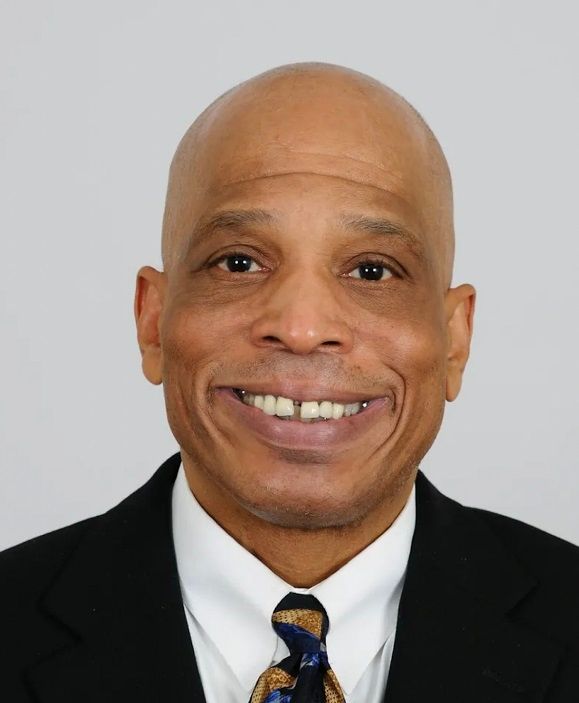
Walter Terry
Walter Terry is the CEO and Founder of the Nat Turner Revolution (NTR). Named for the enslaved African-American preacher who led the historic rebellion against slaveowners, NTR helps those who’ve been affected by drug prohibition to reclaim significant defense by taking action to end the prohibition of drug use. Walter Terry’s story bridges a complex of barriers, those facing both patients with chronic pain and being African-American in the hands of the system. After being targeted, poised, and framed by undercover agents on criminal medical-use marijuana charges, Mr Terry was shocked when interrogators showed significant bias in who they chose to further investigate. The racism he encountered fueled him to raise awareness for how drug prohibition fuels discriminatory vilification of individuals.

RuPaul
As a Black, gay, fabulous, gender-bending man and certified Supermodel of the WorldTM, RuPaul Charles has definitely taught us all a little something about coming out of the closet. The actor, musician and media personality has been active since the 1980s, first as a club performer and filmmaker in Atlanta’s underground scene. RuPaul headlined the band Wee Wee Pole, performed in collaboration with numerous musical acts in New York City, released the hit dance track “Supermodel (You Better Work)” in 1993, and in 1994 became the first drag queen to land a major cosmetics campaign with MAC among countless other achievements. While Ru’s been a superstar since day one, her production of over fifteen seasons of RuPaul’s Drag Race has put the miracle of drag in the mainstream. From the Pharma-Rusical in Season 10, Episode 2, to acting and other challenges, drug use, or its innate comedic potential, is no stranger to Drag Race. (See Sasha Colby’s “bag of weed” dress from the current season, or Season 14 winner Willow Pill’s drag inspiration.) Drag, like drug use, often requires its participants to come out of the closet, practice self-acceptance, and face the potential of being judged, or worse; and Ru hasn’t shied from allowing her daughters to share their stories with the world. By giving people the space to be vulnerable, drag, and destigmatizing drug use, both help us learn tolerance and appreciation for our differences. In this way, Ru has created a how-to guide for coming out of the closet of life. So yes, your Drag Race addiction is a form of activism.
As Ru wrote in her 1995 memoir Lettin It All Hang Out, ““Skipping the drugs and the drink was easy, but having no friends -- that was the hardest part.” (127)

Jamilah George
Jamilah George has made numerous strides in psychedelics and social justice, but academics are just the beginning of her activism career. She’s passionate about increasing accessibility and education by making science understandable and translatable. Her work with the Multidisciplinary Association for Psychedelic Studies (MAPS), the leading organization behind the push to legalize psychedelic therapy, is centered on treatment-resistant PTSD among people of color, and her talk at MAPS’ “Let Justice Roll Down: Relinquishing Psychedelic Healing for People of Color,” is not only extremely relevant and powerful, it’s an actual sermon. “The time for the work is now…Get uncomfortable!” she calls to the audience with the passion of a woman who was also just talking about Toni Morrison (and if you don’t know what I’m talking about, go get yourself a copy of Song of Solomon, now).

Wanda James
One of the first cannabis executives to be elected into office, having been elected to represent District 1 on the University of Colorado Board of Regents in November 2022, and the first African-American woman to open a dispensary, Wanda James is a woman of many talents. A former Navy lieutenant and Fortune 100 corporate director who served on Barack Obama’s 2008 National Finance Committee during his presidential campaign James likes to focus on the merging of what she terms “pot and politics.” She and her husband Scott Durrah ran five successful restaurants and eventually opened the Apothecary of Colorado in 2009, three years before the state went fully legal. This became Simply Pure, a pioneering brand now operating on both coasts and shipping CBD products to all 50 states. James also served on the task force for Colorado’s Amendment 64, which legalized prohibition in the state, under then-Governor John Hickenlooper; she was later appointed to the Colorado Tourism Board by Governor Jared Polis. She is also the founder and President of the Cannabis Global Initiative (CGI), a marketing and consulting firm that specializes in diversity development, regulatory framework and marketing. The group is dedicated to providing innovative solutions through strategic alliances and business development surrounding the legalization of cannabis.
In an industry where 97 percent of business owners who receive funding are white, James and Durrah have spent the past decade working to address racial inequality and stigma in the cannabis industry. Even though whites are more likely to sell drugs, Blacks and Latinos are still unfairly targeted and arrested on cannabis-related charges, and to make matters worse, many of those with past felony charges aren’t legally permitted to participate in the nation’s fastest-growing economy.

Dr. James R. Jones, PhD
A Rutgers University professor in African American Studies and Sociology, Dr. James Jones, PhD, is author of The Last Plantation, his book that marks the first major study of racial inequality in the American congressional system. While his work isn’t directly related to drugs, it’s of this writer’s opinion that in this country, drugs are related to everything. Jones’s work measures society’s complexities from the halls of Congress to labor and the workforce, examining how historic inequalities have relayed systemic marginalization. By defining how systemic injustice is born and bred, Dr Jones also sheds light on the bureaucracy and disparities of self-medication.

Dr. Ayana Jordan, MD / PhD
In February 2023, the American Society of Addiction Medicine (ASAM) recognized Dr. Ayana Jordan (MD/PhD) with the first Diversity, Equality, Inclusion and Justice Award, and rightly so. For starters, Dr Jordan is both fiercely educated, and just plain fierce. She is a Yale professor and physician who devotes her research and medical practice toward ways of diagnosing, rather than putting a bandaid on, the issues impacting her community. Specifically, she’s advancing research in mental health and increasing access to care for the historically underserved. As the ASAM tweeted in honor of Dr. Jordan’s milestone, "With [this award], we are able to celebrate the exceptional work of someone who has advanced the field with unique research that emphasizes the imperative of expanded access to addiction treatment."
Her Twitter account, Dr Ayana "Stop Killing Black Men" Jordan, is like the BIN for medicine and public health nerds. She is a consistent vocal advocate that reaches beyond her medical practice to work toward increased accessibility and mental health treatment in the communities where it is most needed. She also leads the Jordan Wellness Collective, a community-engaged research collaborative “focused on providing equitable mental health, substance-use disorder treatment, and preventative services for historically marginalized populations.”

Nina Turner
From serving in the Cleveland City Council and Ohio State Senate, to national co-chair for the Bernie Sanders 2020 campaign, Nina Turner has continued boldly delivering Black excellence and people-over-profit poetic, and political, justice. Turner became President of the political action group Our Revolution in 2017, which helps drive a national push to elect progressive candidates and educate voters about the issues. She is a Senior Fellow at the New School’s Institute on Race, Power and Political Economy, and the host of the TYT Network series Unbossed. Turner is a self-described “progressive firebrand and hell-raising humanitarian,” and her show is dedicated to bringing together everyday Americans to educate one another and challenge oppression and corruption. She is an outspoken critic of the War on Drugs and its disruption to the wellbeing of Black and Brown communities, and has written legislative movements supporting universal healthcare, federal cannabis legalization, and other public health issues as they pertain to systemic inequalities.

Veronica Wright
Veronica Wright is the founder of the National Coalition for Drug Legalization (NCDL), a nonprofit organization she started to advance the conversation to end drug prohibition through research and community service. The NCDL is redefining drug legalization by clarifying all that it can accomplish: public health, consumer protection, incarceration and crime reduction, and accountability for inequalities in our current drug laws. Wright is a powerful advocate for legalization, positing its potential to save lives and reduce crime, whereas prohibition has only given license for violence.
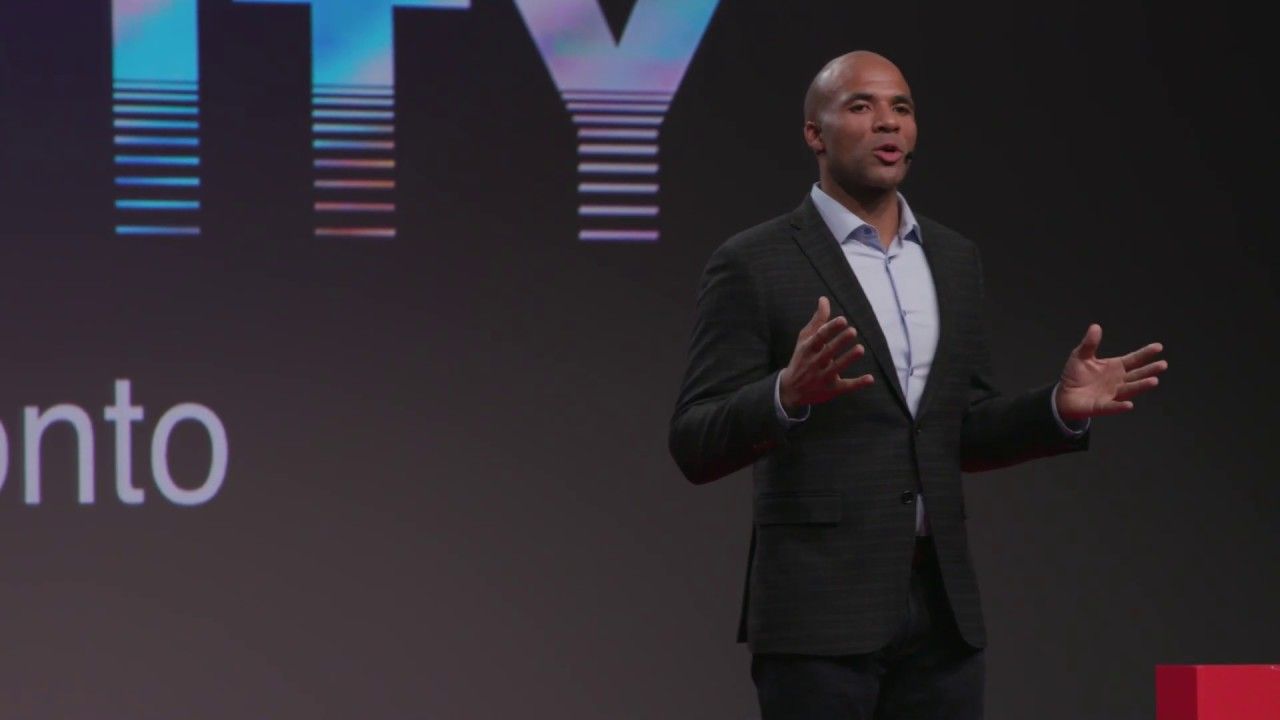
Dr. Akwasi Owusu-Bempah, PhD
Each person on this list should be noted for their intersectionality, and Dr. Akwasi Owusu-Bempah, PhD, is no exception. A leading international academic in the areas of justice, inequality, policing, and drug policy, Owusu-Bempah is a professor of Sociology and the author of Waiting to Inhale: Cannabis Legalization and the Fight for Racial Justice with cannabis industry pioneer Tahira Rehmatullah. He’s a key believer in the unequal enforcement of our drug laws being a key driver of the inequalities we see in the justice system, poignantly quoting Tupac Shakhur in his book: “‘Instead of a war on poverty, they have a war on drugs so that police can bother me.’”

Charlotte James and Undrea "Dre" Wright
Charlotte James and Undrea Wright are a Baltimore-based duo channeling ancestral energy to challenge spaces where white-dominated, westernized, or superficial attitudes toward wellness prevail. They believe the path to collective liberation is inextricable from a connection and reverence with plant medicine. As co-founders of the Ancestor Project, their mission encompasses Black-led psychedelic education, legal ceremony, integration through returning reverence to Sacred Earth Medicine and Ancestral Traditions. You can join them in generating and supporting BIPOC community involvement through their website and other offerings.

Ngaio Bealum
While Ngaio Bealum is best known for his role in Netflix’s Cooking on High as the resident cannabis expert, his career, interests, and advocacy reach far beyond the culinary applications of cannabis. Born to Black Panther parents, he has continued his family’s activism by first attending numerous pro-legalization rallies to continually advocating for freeing those in prison for cannabis related crimes and the ability of small time growers to have a share in the market. He is also a well-regarded comedian and musician, as well as successful podcast host on Chopping it Up with Ngaio Bealum.
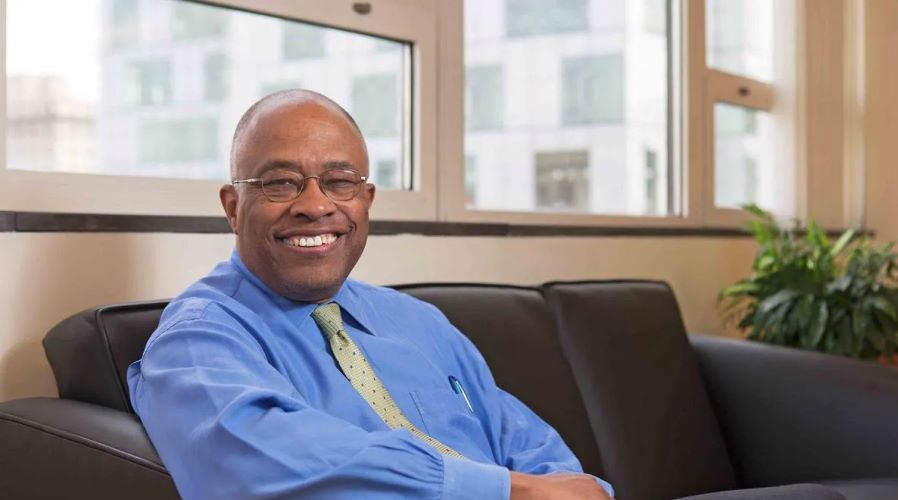
Kurt Schmoke
The city of Baltimore has a star-studded and seasoned role in the saga of US drug policy. But before it was the first to openly study psychedelics, or film the biggest TV drug-crime-drama of all time, The Wire, it was mayored by Kurt Schmoke, who made history during his first year in a famous 1988 speech at the U.S. Conference of Mayors. Mayor Schmoke cracked the audience - face crack, that is - by calling on fellow legislators to spark a national debate on drug decriminalization and medical research: “Decriminalization would take the profit out of drugs and greatly reduce, if not eliminate, the drug-related violence that is currently plaguing our streets.”
While this righteous late 80s rhetoric was beyond the times then, it’s been fundamental in moving city officials to offer alternatives like methods of harm reduction in Baltimore and beyond.
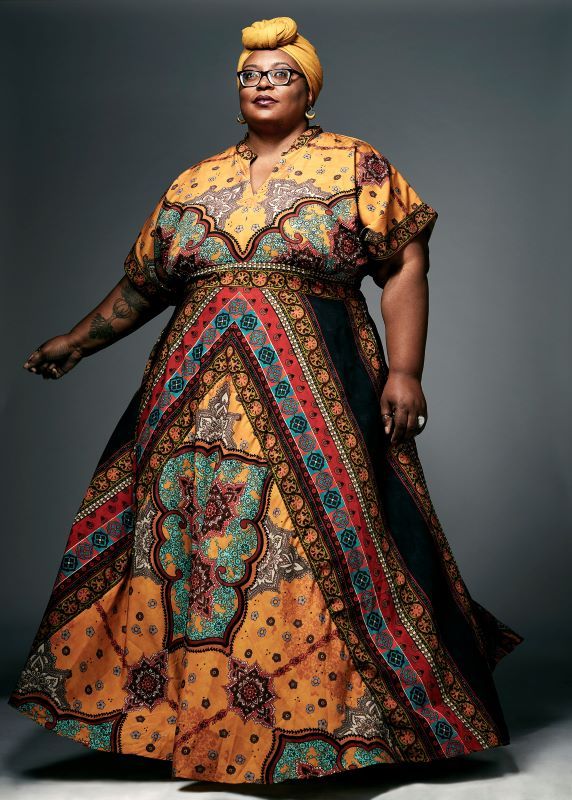
Hanifa Nayo Washington
Hanifa Nayo Washington is one of the leading faces of the Fireside Project - a nonprofit that’s creating systemic change in the field of psychedelics in three key domains: safety, diversity, and equitable access. She’s passionate about the Black community’s reclamation of wellness, from internal work with plant medicines and psychedelics, to affirmative community action and equitable public policy and resources. Through Fireside and beyond, Hanifa’s work is grounded in sacred activism and spiritual resilience. In addition to sharing resources, plus her own music and art, she’s devoted to community offerings through One Village Healing, an online BIPOC centered healing, resilience, and psychedelic wellness space.
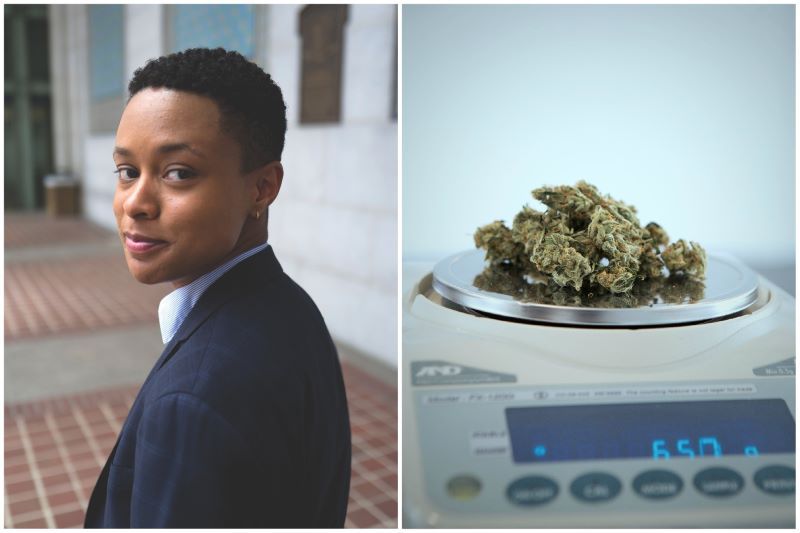
Cat Packer
In her recent article for Marijuana Moment, “The Black Market Problem in Cannabis” Cat Packer makes the case for redefining how we talk about drugs and criminality. Since 2015, Packer’s law career has been reshaping the industry and inclusivity of cannabis. Once dubbed the first ever Cannabis Czar of Los Angeles, she did not waste any time serving as Executive Director of the Los Angeles Department of Cannabis Regulation, and has been credited with issuing over 1,200 licenses, with over 350 going to Social Equity applicants. Packer then brought her execution and drive to meet the kindred spirits over at NYC’s Drug Policy Alliance, and currently serves as their Director of Drug Markets and Legal Regulation.

James Forman Jr.
Author of the Pulitzer Prize-winning book Locking Up Our Own: Crime and Punishment in Black America, James Forman, Jr. uses his scholarship to examine the racial constituents of American courtrooms and criminal proceedings. In Locking Up Our Own, Forman argues that the Controlled Substances Act of 1970 that initiated the War on Drugs was part of a larger strategy by the American government to target the Black community. He is a leading critic of mass incarceration and its disproportionate impact on people of color, which he examines inside and outside of the classroom and courtroom. The son of leading Civil Rights activists James Forman Sr. and Constancia Romilly, Forman is a Professor of Constitutional Law and courses in Race, Class, and Punishment at Yale Law School. Last year he brought his teaching behind prison walls, offering a seminar called Inside-Out Prison Exchange: Issues in Criminal Justice, which he brought together, in the same classroom, 10 Yale Law students and 10 men incarcerated in a Connecticut prison.

Sam Rivera
One of the greatest minds leading national and local efforts for harm reduction, Sam Rivera is redefining what it means to self-medicate. He is the Executive Director of Onpoint NYC, the country’s first-ever legal and safe consumption site, which has already prevented over 700 overdoses since opening in 2021. Until his distinctive self-medication approach, public safety drug messages have mostly pushed for abstinence, despite the ineffectiveness of the method. Rivera’s personal experiences have invoked guidance and leadership into his work creating a wealth of compassion and resources for those seeking community resources.
You can get a tour of the Center with Sam Rivera himself at their website. Plus, they’re hiring!

Eric Andre
It may surprise you to learn that Eric Andre, the sketch comic known for stoner-funny surrealism and his eponymous Adult Swim series, has also delivered some deliberately sobering content regarding social justice. Like most comics, he’s out and proud about his own experimentation with drugs, but Andre takes it a step further where others haven’t, calling for legal regulation and calling out political decisions for wasting and making money vis-a-vis drug prohibition.
His first Netflix stand-up special was rightfully dubbed Legalize Everything, in which Andre tells jokes and anecdotes, recounting which drugs he's tried, which ones he wants to, and asking the audience what drugs they like. Whether he’s using chemistry or comedy, Andre continues to support the destigmatization of drugs and people who use them.

Dr. Monnica Williams, PhD
One of the first women of color to lead psychedelic studies, Dr Monnica Williams, PhD, is a scientist and researcher bringing inclusivity to the forefront of psychological and pharmacological studies. The results of her groundbreaking publication Inclusion of people of color in psychedelic-assisted psychotherapy: a review of the literature, while likely unsurprising to BIPOC readers, posit and call attention to a whopping history of homogeny in psychedelic research. The researchers found that between 1993 and 2017, Caucasians comprised between 82 and 90 percent of participants.
Dr Williams’s research continues to prioritize inclusion of minorities in future studies and speaks to the importance of improving recruitment to better understand the efficacy of psychedelic-assisted psychotherapy in people of color, and provide all with equal opportunities for involvement.

Dr. Darron Smith, PhD / PA-C
For any neurodiagnostic technicians out there looking to add “ecstasy research” to their electrode-placement resume, know that Dr Darron Smith, PhD, PA-C, is doing just that. As a MAPS trainee and researcher, Dr Darron Smith represents the diversity of careers available in the psychedelic space, and the importance of cultural diversity within them.
His current research in applied neuroscience uses EEG feedback to study the physiology of race-based trauma and MDMA-assisted psychotherapy. He is also a Physician Assistant who speaks on the need for anti-racist training in therapy and other psychedelic modalities, a board member of the American Psychedelic Prescribers Association, and a faculty member at the University of Memphis.

Jessamyn Stanley
Jessamyn Stanley has a way of reaching from her heart into yours, unveiling the inner powers of vulnerability and unapologetically being yourself. The feeling of being seen, heard, is essential for connection and healing, and fostering this “yolking” is one of the ways Jessamyn absolutely shines.
With a superstar ability to resonate and make spaces feel more inclusive, her work encompasses cannabis use and activism, body positivity and fatphobia, Yoga practice, queerness, Blackness in America, and living out any of these truths in Southern or socially conservative states. She co-founded We Go High NC, a southern Cannabis Justice organization working to increase cannabis access in prohibition states, and increase awareness for cannabis-related incarceration.
She is the author of two globally-recognized books, and as a globally-recognized yoga teacher, has made her classes and other wellness offerings accessible to every body online at The Underbelly, and on YouTube, with videos like "Yoga for Beginners," "Fat Body Love," "Break from Binge Watching," "Smoking Weed With Yoga Teachers," and my favorite, "Yoga on High: Destigmatizing Cannabis for Parents."

Ifetayo Harvey
Another member of the team at Drug Policy Alliance, and Founder of the People of Color Psychedelic Collective, Ifetayo Harvey has a remarkable career in bringing psychedelic education to people of color, creating harm reduction and widening representation in the field. In 2016, she wrote and presented the piece Why the Psychedelic Community is So White, which echoes the published research of Dr Monnica Williams. Ifetayo is a leader in creating infrastructure that centers care, affordability, and accessibility for communities of color and allied psychedelic circles. The POCPC provides educational content and hosts events to inspire deliberately anti-racist and diverse psychedelic participation.

Sutton King
Sutton is a globally recognized Indigenous rights activist, public speaker, published researcher and social entrepreneur. She is the co-founder and President of Urban Indigenous Collective, the Co-Founder of ShockTalk, and a Program Manager of the Indigenous Medicine Conservation Fund, and among other things, her expertise is in stakeholder models and access and benefit sharing through social impact investment and giving. Her work is centered on community-based research, programming, and direct services, and zooming out; you’ll see this is her pathway of strengthening community and improving Indigenous health equity across sectors. This week King spoke at SXSW 2023 in “Indigenizing Systems,” a discussion with Shinnecock Nation member and cultural preservationist Chenae Bullock, founder of Moskehtu Consulting. Moderated by Julia Mande, Managing Director of Adapt To Complexity, the panel explored expanding the concept of forming more innovative systems through Indigenizing them, which can benefit contemporary societies with growth and suitability across sectors, from finance, governance, and communication, to medicine, and more.

Jasmine Mans
Hailing from Newark, New Jersey, Jasmine Mans is a Black American poet and artist behind Buy Weed From Women, a product design house and merchandise brand dedicated to supporting women entrepreneurs and legalizing cannabis. So get yourself a shirt, and Buy Weed from (Black) Women. Much of Mans’s poetry centers on illustrating the Black experience through books like her recent publication, Black Girl, Call Home, as well as Notes for Kanye, plus video, visual, and performance art. Regarding her new book, fellow bestseller Morgan Jerkins revered it as: “This book is a haven for all the Black daughters out there, hoping to make sense of the power and powerlessness in their bodies, the connection to others' bodies, and the moments of everyday life that comprise so much of our identities.”
Which other Black thought leaders are innovating drug policy and cannabis and psychedelics education? Tell us who inspires you - reach out at @honeysucklemagazine on Instagram and @HoneysuckleMag on Twitter!
Find Out More On Social
--
Featured image: Kassandra Frederique (C) Drug Policy Alliance


